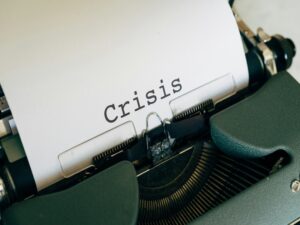Every company has to play by the same rules of the game
You’ve got a business idea whose core purpose revolves around an environmental or social mission. The one thing holding you back from bringing your idea to market is a lack of capital. So, you do what any other business would do in this situation. You go to a bank with a business proposal asking for an injection of capital so you can get it up and running. When you go to the bank (or any other source of investment like seed funding or an investment fund), the two critical factors that determine whether you’re successful in raising the funds are: what’s the potential for profitability and what’s the potential for growth. Because the thing with any investor is that they expect to profit from an investment. And herein lies the ultimate dilemma with companies whose core purpose revolves around being sustainable. They have no option but to play by the rules of the game governing markets.
Let’s imagine our well-intentioned company is successful in landing the necessary capital to start their business. When they go into business, they enter a market system where every company is in fierce competition to get a larger market share. To do that, companies aim to increase productivity by selling more products. If they sell more, they need to make more. Making more drives the price of an individual product down, decreasing costs which helps to increase margins. Now an argument for why markets can move us onto a sustainable path is that if every company embraces a sustainable purpose, then we’ll eventually reach a point having an environmental or social mission is the dominant form of business.
But the thing about our new business (or any business with a sustainable purpose) is that it must play by the rules governing markets simply to survive. If it doesn’t, it will go out of business, which would hardly make the company sustainable, would it? The thing about a capitalist economy is that the aim of the game for every business is to maximise profits. Maximising profits is not the same as economic growth — “profit is the difference between the money a firm makes (revenue) and the money it spends (costs), whereas growth is an increase in total production.” In theory, a business can grow without increasing profits and increase profits without growing, but in reality, the profit motive tends to be intertwined with increases in output.
Companies that can demonstrate profitability and growth potential are more likely to gain injections of funds from investors. Those funds can be used to reinvest in new product lines, technology, or innovations — helping the company to sell more products, with the aim of increasing profits and total production. Let’s imagine our new company is doing well, but it needs further injections of investment to scale. No investor will provide the funds if the company doesn’t demonstrate growth potential and potential for profitability.
The bottom line is that no matter how determined businesses are to embrace sustainability, they still operate within competitive markets. They still have to balance their environmental or social mission with making profits. Strategic decision-making has to centre on revenue, cash flow and balance sheets. They still have individuals working for them that have self-serving motivations. Those individuals are rewarded in the same way as any other company, by being paid a wage and performance-related bonuses. The health and success of the business is still based on its ability to increase revenues and achieve profitability.
Companies with a sustainable purpose are undeniably well-intended. But if the rules of the game are unsustainable by design, then no matter what a company does, it must continue to conform to those rules. To put it another way, the problem is bigger than individual companies. And no matter what any individual company does, every company remains an outcome of the problem. The problem is that economists refuse to accept the need to give up growth as the foundational goal of economic activity.
Growth is problematic because the economy has now become so large that we’re in a state of ecological overshoot. Overshoot translates into environmental impacts like greenhouse gas emissions, habitat destruction, ocean acidification, and the countless other ways we harm the natural world. So long as we remain focused on increasing economic growth, our impacts on the environment will increase, as will the risk of triggering tipping points in the Earth system.
What’s required is a redesign of the economy around different principles. Different principles will translate into very different rules of the game. But you can’t just spontaneously move from one economic system to another. So we’re stuck with an economy that is unfit for purpose and continues to compel behaviour and decision-making that leads to the same undesired outcomes.
If tipping points are breached, then everything changes. Crop yields will significantly reduce, leading to food shortages and higher prices. Living standards will drop, and more people will go hungry. When people go hungry, they riot. That’s what happened before the French and Russian revolutions. Historically it’s only in moments of crisis that the fabric of society has weakened and provided revolutionary groups with the opportunity to redesign society in a different image. It seems the only way any economic transformation will be realised now is if a similar breakdown of law and order presents an opportunity for systems change. Revolution is never desirable, but to have any chance of building a sustainable society, it appears to have become necessary. What you can be sure of is that companies with a sustainable mission baked into their business model aren’t spearheading an economic transformation.



